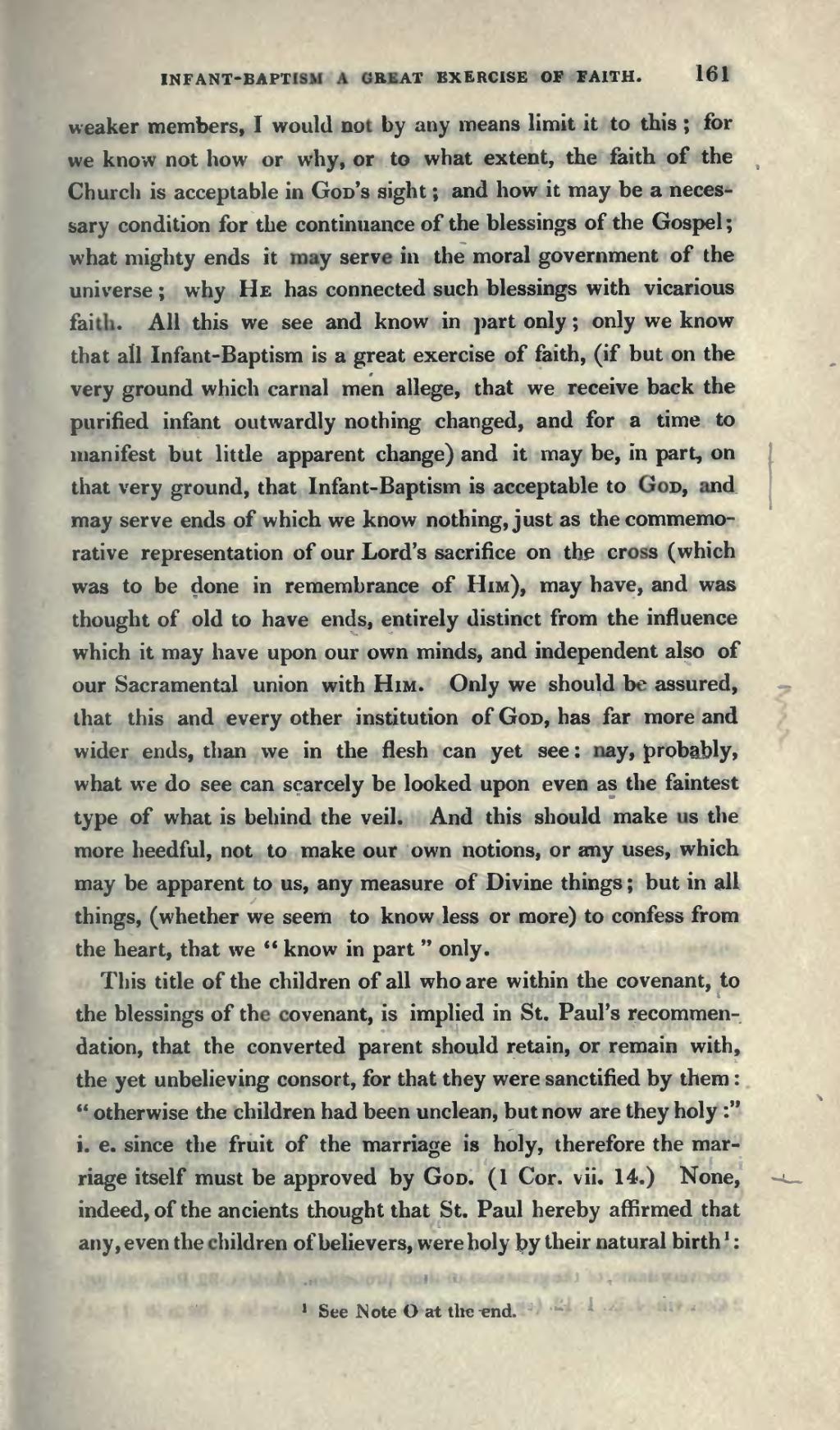weaker members, I would not by any means limit it to this; for we know not how or why, or to what extent, the faith of the Church is acceptable in God's sight; and how it may be a necessary condition for the continuance of the blessings of the Gospel; what mighty ends it may serve in the moral government of the universe; why He has connected such blessings with vicarious faith. All this we see and know in part only; only we know that all Infant-Baptism is a great exercise of faith, (if but on the very ground which carnal men allege, that we receive back the purified infant outwardly nothing changed, and for a time to manifest but little apparent change) and it may be, in part, on that very ground, that Infant-Baptism is acceptable to God, and may serve ends of which we know nothing, just as the commemorative representation of our Lord's sacrifice on the cross (which was to be done in remembrance of Him), may have, and was thought of old to have ends, entirely distinct from the influence which it may have upon our own minds, and independent also of our Sacramental union with Him. Only we should be assured, that this and every other institution of God, has far more and wider ends, than we in the flesh can yet see: nay, probably, what we do see can scarcely be looked upon even as the faintest type of what is behind the veil. And this should make us the more heedful, not to make our own notions, or any uses, which may be apparent to us, any measure of Divine things; but in all things, (whether we seem to know less or more) to confess from the heart, that we "know in part" only.
This title of the children of all who are within the covenant, to the blessings of the covenant, is implied in St. Paul's recommendation, that the converted parent should retain, or remain with, the yet unbelieving consort, for that they were sanctified by them: "otherwise the children had been unclean, but now are they holy:" i.e. since the fruit of the marriage is holy, therefore the marriage itself must be approved by God. (1 Cor. vii. 14.) None, indeed, of the ancients thought that St. Paul hereby affirmed that any, even the children of believers, were holy by their natural birth[1]:

